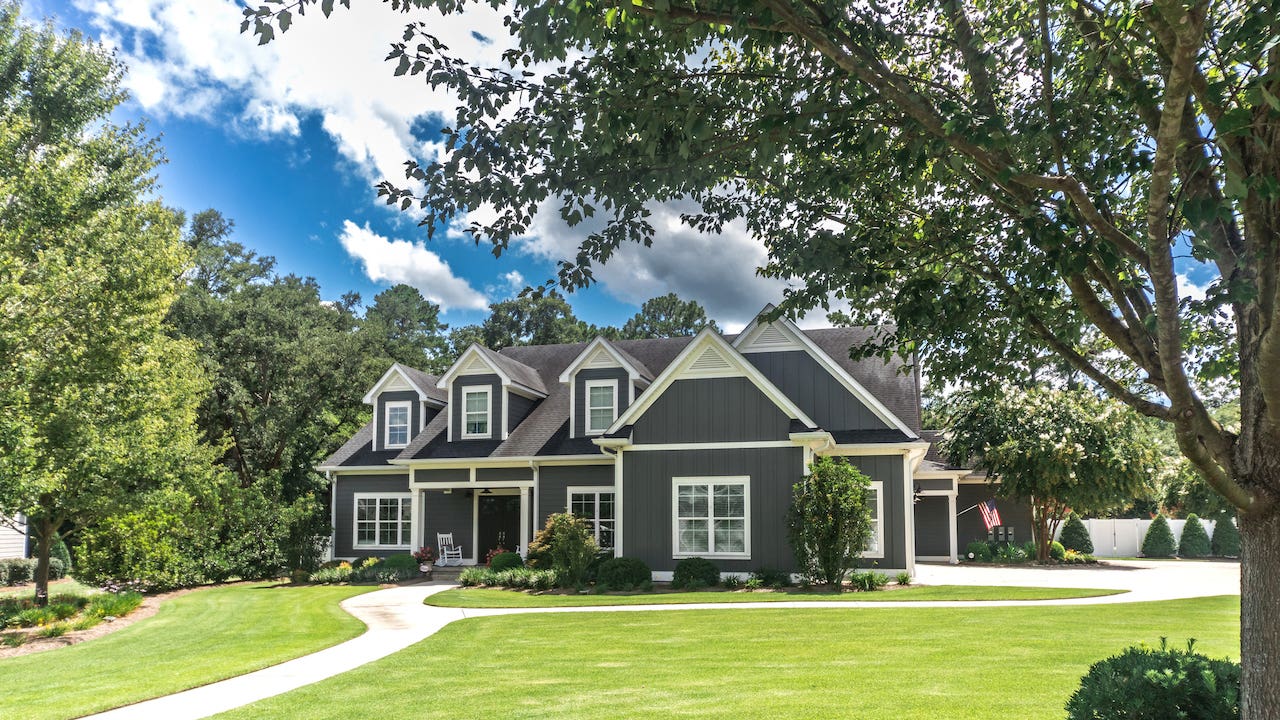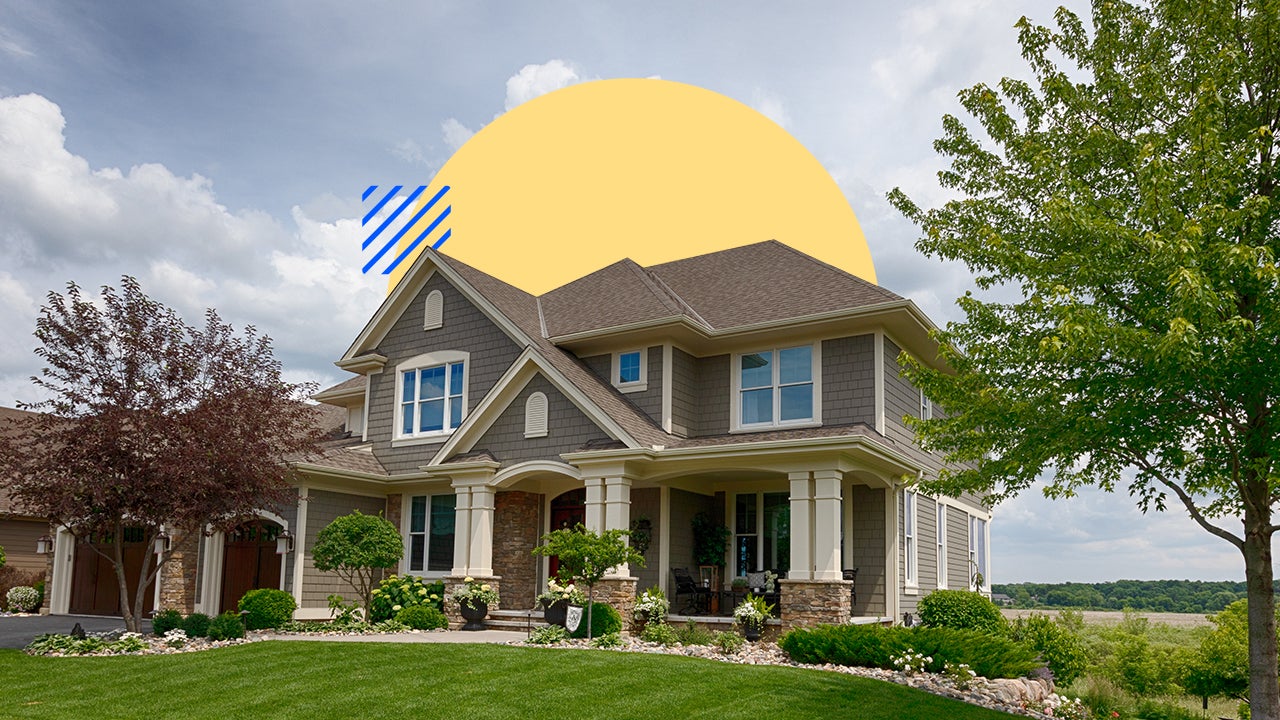What income do I need to afford a $900K house?

Having $900,000 to spend on a home purchase provides you a wide variety of options. In fact, that price tag is more than double the National Association of Realtors’ nationwide median home price, which in July 2023 was $406,700. A variety of factors go into determining whether you can afford a house of that price, however, ranging from your annual income to the down payment you have available and the mortgage rate you’re able to obtain.
So what income is needed for a $900K house purchase? Let’s break it down using Bankrate’s mortgage calculator. Assuming a 20 percent down payment and a 30-year fixed mortgage with a rate of 6.8 percent, your monthly principal and interest payments would come to $4,693. Additional fees like property taxes and homeowner’s insurance, which vary widely by location, will bump that monthly mortgage payment up by at least several hundred dollars — let’s call it $5,400 per month. Annually, that would come to about $64,800 in mortgage payments.
Experts often advise that you spend no more than approximately one-third of your income on housing costs. That means you can triple $64,800 to get a clearer picture of what the annual income requirements would be in order to comfortably afford a $900,000 home: approximately $194,400, at a bare minimum. Don’t forget, though, that this estimate does not account for upfront expenditures, like closing costs and down payment — a 20 percent down payment on a $900K home comes to a sizable $180,000 — so you’ll need to make enough to cover more than just the monthly mortgage bill.
Income to afford a $900K house
When you’re preparing to purchase a home it’s important to understand the 28/36 rule, a spending guideline recommended by many financial experts that’s meant to ensure your housing costs are within your means. According to this rule of thumb, you should spend no more than 28 percent of your income on housing, and no more than 36 percent on your overall debt payments.
Now, let’s apply the 28/36 rule to the income of $194,400 calculated above. Divided by 12, that amounts to $16,200 per month, and 28 percent of that would be $4,375. So ideally, you should not spend more than $4,375 on your total mortgage payment — including principal, interest, property taxes, insurance premiums and HOA dues if applicable.
For the 36 portion of the equation, add to your monthly housing expense all your other monthly expenses, such as credit card bills, car payments and student loans. If this figure totals more than 36 percent of your monthly income, you might be spreading yourself too thin.
Those whose income can support a $900,000 purchase should be able to afford a home just about anywhere in the country. Even notoriously pricey markets like New York City and San Francisco are within your reach — though keep in mind that what $900K can buy you in Downtown Manhattan or Pacific Heights will look quite different than what it can buy you in a less expensive area.
What factors determine how much you can afford?
There’s more to home affordability than just your annual income and the property’s price. Your personal finances and loan type are just as important. Some of the additional variables that come into play include:
- Down payment: The size of the down payment you bring to a home purchase plays a significant role in how much home you can ultimately afford. A bigger down payment means you have to borrow less, which in turn means less interest to pay and lower monthly payments. And if you put down less than 20 percent, regardless of your mortgage loan’s minimum requirement, you’ll likely have to pay an additional monthly fee for private mortgage insurance.
- Credit score: Your credit score is another critical piece of the affordability puzzle when shopping for a home. The interest rate you’re offered on a mortgage depends largely on how high your score is. Applicants with the best scores are offered the most competitive interest rates, which can reduce your monthly payments significantly.
- Loan-to-value ratio: The loan-to-value ratio (LTV) refers to the relationship between the amount of your mortgage loan and the value of the home.
- Debt-to-income ratio: Similarly, the debt-to-income ratio (DTI) is an expression of your monthly debt responsibilities versus your monthly income. Both of these factors are a significant consideration for lenders when reviewing a mortgage application.
-
Financial assistance: Many national and local government programs are available that provide down payment assistance or closing cost assistance, particularly for first-time buyers, in an effort to make the cost of homeownership more manageable. However, high earners are unlikely to be eligible.
Stay the course until you actually close
As you approach closing day on your home purchase, it’s important to remain disciplined with your spending, as well as anything else that could impact your credit score or your debt-to-income ratio (such as a major purchase or a drastic income change). Doing so may cause a lender to reassess your application, and they may well reverse course if they see unfavorable changes in your credit score or debt levels.
It’s also important to stay in close contact with your real estate agent throughout the process. Local agents are experts in the workings of their local markets — they can guide you through the entire closing process, helping to negotiate and keeping things on track by avoiding delays.
FAQs
-
If you have the upfront assets needed to cover the down payment and closing costs, plus a cushion for regular maintenance and emergencies, probably — but you might be cutting it close. Assuming a 20 percent down payment and a 30-year fixed mortgage with a rate of 6.8 percent, the monthly principal and interest payments on a $900K house would come to $4,693. And applying the 28 percent rule, 28 percent of the monthly income on your $200K annual salary would come to $4,666. Whether you’re able to comfortably meet the total payment would depend on the property tax and insurance rates in your area, and what interest rate you secure on your loan. And don’t forget to factor in your other debt, like credit card bills.
-
Assuming a 20 percent down payment and a 30-year fixed mortgage with a rate of 6.8 percent, the monthly principal and interest payments on a $900K house would come to $4,693. However, additional fees like property taxes and homeowner’s insurance will increase the monthly cost, and those vary widely based on location.
Why we ask for feedback Your feedback helps us improve our content and services. It takes less than a minute to complete.
Your responses are anonymous and will only be used for improving our website.






